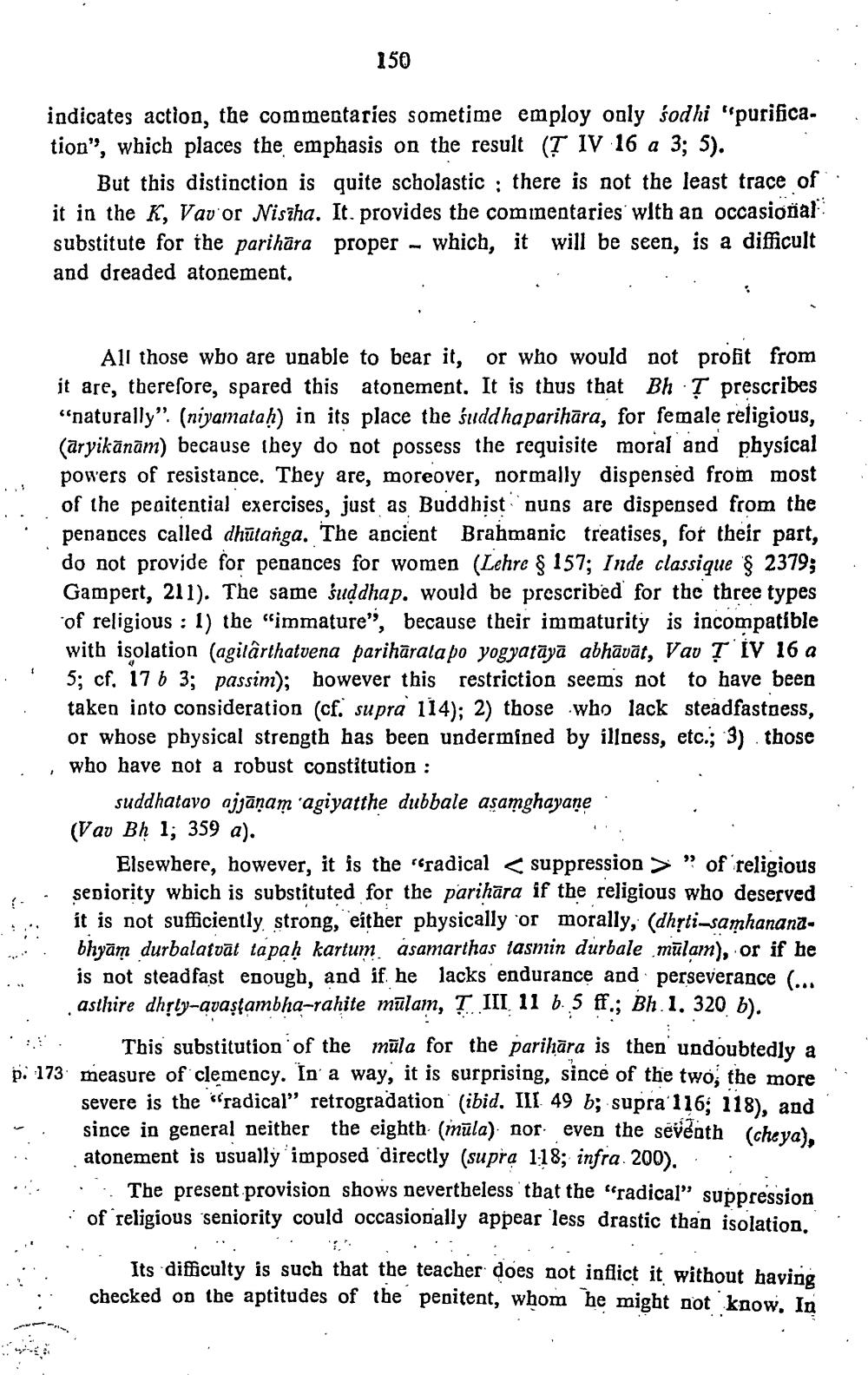________________
150
indicates action, the commentaries sometime employ only sodhi "purifica. tion", which places the emphasis on the result (T IV 16 a 3; 5).
But this distinction is quite scholastic ; there is not the least trace of it in the K, Vav'or Nisiha. It. provides the cominentaries with an occasional substitute for the parihāra proper - which, it will be seen, is a difficult and dreaded atonement.
All those wbo are unable to bear it, or who would not profit from it are, therefore, spared this atonement. It is thus that Bh s prescribes “naturally” (niyamataḥ) in its place the suddhaparihāra, for female religious, (aryikānām) because they do not possess the requisite moral and physical powers of resistance. They are, moreover, normally dispensed from most of the peoitential exercises, just as Buddhist nuns are dispensed from the penances called dhūtanga. The ancient Brahmanic treatises, for their part, do not provide for penances for women (Lehre § 157; Inde classique § 2379; Gampert, 211). The same suddhap. would be prescribed for the three types of religious : 1) the "immature”, because their immaturity is incompatible with isolation (agilârthatvena parihārata po yogyatāyā abhāvāt, Vav Ţ IV 16 a 5; cf, 17 6 3; passim); however this restriction seems not to have been taken into consideration (cf. supra 114); 2) those who lack steadfastness, or whose physical strength has been undermined by illness, etc.; 3) those who have not a robust constitution :
suddhatavo ajjāņam 'agiyatthe dubbale asamghayane (Vav Bḥ 1; 359 a).
Elsewhere, however, it is the radical <suppression > ” of religious sepiority which is substituted for the parihāra if the religious who deserved it is not sufficiently strong, either physically or morally, (dhrti-samhananabhyām durbalatvāt tapaḥ kartum. asamarthas tasmin durbale mūlam), or if he is not steadfast enough, and if he lacks endurance and perseverance (...
asthire dhțly-avaştambha-rahite mūlam, Ţ III 11 b. 5 ff.; Bh. 1. 320 b). :. This substitution of the mūla for the parihāra is then' undoubtedly a p: 173' measure of clemency. In' a way, it is surprising, since of the two, the more
severe is the radical” retrogradation (ibid. III 49 b; supra 116; 118), and . since in general neither the eighth (müla) nor even the seventh (cheya).
atonement is usually imposed directly (supra 1:18; infra. 200). .. The present provision shows nevertheless that the "radical” suppression
: of religious seniority could occasionally appear less drastic than isolation, .. Its difficulty is such that the teacher does not inflict it without having ... checked on the aptitudes of the penitent, whom he might not know. In




